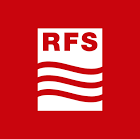RFS news roundup: March/April
Global smart cities market value predicted to surge by 2030
A recent report from Research and Markets expects the smart city market value to reach $6,965.02 billion by 2030, with green initiatives a big driver behind this, but how can the industry ensure this potential is reached?
It is fantastic to see the potential of smart cities being recognized in this latest market report. The applications with the technology are limitless and can be used to enhance many aspects of everyday life both for the public and, as has been identified in the report, the environment. The key stone to ensuring that the smart city market thrives as predicted will be the infrastructure that underpins it. Having the right type of connectivity, able to deliver complete coverage across an urban environment, without suffering interference is essential and a key component of smart city deployments running smoothly.
Tom Kuklo
2022 is the year of peak 5G spending
Research from Dell’Oro Group suggests that 2022 may well be the peak year for 5G spending by U.S. wireless operators. The decision to alter the projections for the industry comes as major operators ramp up mid-band 5G deployments in the C-band and the 3.45 GHz spectrum bands, so how will this shape the telecoms landscape?
"We can clearly see that US operators mean business in the next few years when it comes to bolstering 5G deployments. Collectively they are targeting to deliver 5G to hundreds of millions of subscribers by the end of this year which puts on the pressure to upgrade infrastructure, fast. The key will be to strike a balance between capacity, range, and robustness: missing the mark on any of these components will risk falling short of the ambitions for 5G in 2022.”
Christian Barb
Malaysia wants telcos to buy into a single 5G network
Malaysia continues to move forward with plans to operate a single, national 5G network; however, programs have evolved, meaning 70% of the state-owned entity will be available to buy for eligible companies, namely, existing telecom operators. Two telcos; Telekom Malaysia and YTL Communications, have signed an agreement to own an equity stake in Digital Nasional Bhd (DNB) for the implementation of the 5G network in Malaysia.
“This is undoubtedly an exciting move as originally existing telcos were shut out of the 5G network rollout process last year. This should be a positive step for advancing 5G in Malaysia and gives an opportunity to introduce 5G wholesale expertise to the state-owned company (DNB) and accelerate and improve the network. The Single Wholesale Network (SWN) aims to avoid duplication of investments in infrastructure and drive down wholesale charges. In this model, DNB’s plan to reduce the risk of the digital divide with a supply-driven rollout may also bring substantial benefits through the expansion of the fiber network and readiness of passive infrastructure.
Ken Lim
RFS in the news
April saw a return to an in-person NAB event in Las Vegas, making it a busy month for RFS’s broadcast teams. Ahead of the event, RFS announced it has expanded the existing RFS antenna and combiner infrastructure atop One World Trade Center to enable delivery of next generation broadcasting to 7.45 million households across the New York City area. Meanwhile, the Microwave Business Unit announced the launch of its improved 5G Urban backhauling with new generation of extremely robust, super-high-capacity e-band microwave antennas. You can read more about the announcements in the latest RFS press coverage below.
- One World Trade Center Ready for NextGen TV - TV Technology
- RFS Installs ATSC 3.0-Ready Gear Atop One World Trade Center – TV News Check
- RFS Improves 5G Urban Backhauling With New Generation Of Extremely Robust, Super-High-Capacity E-band Microwave Antennas - Wireless Design Online


